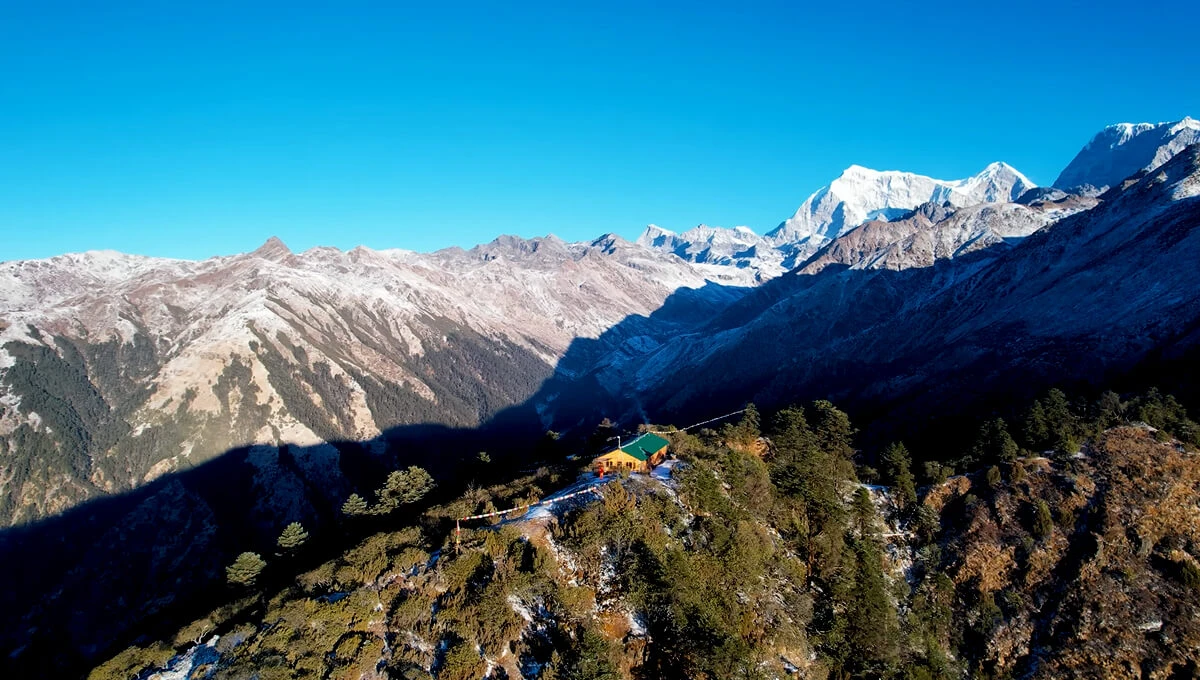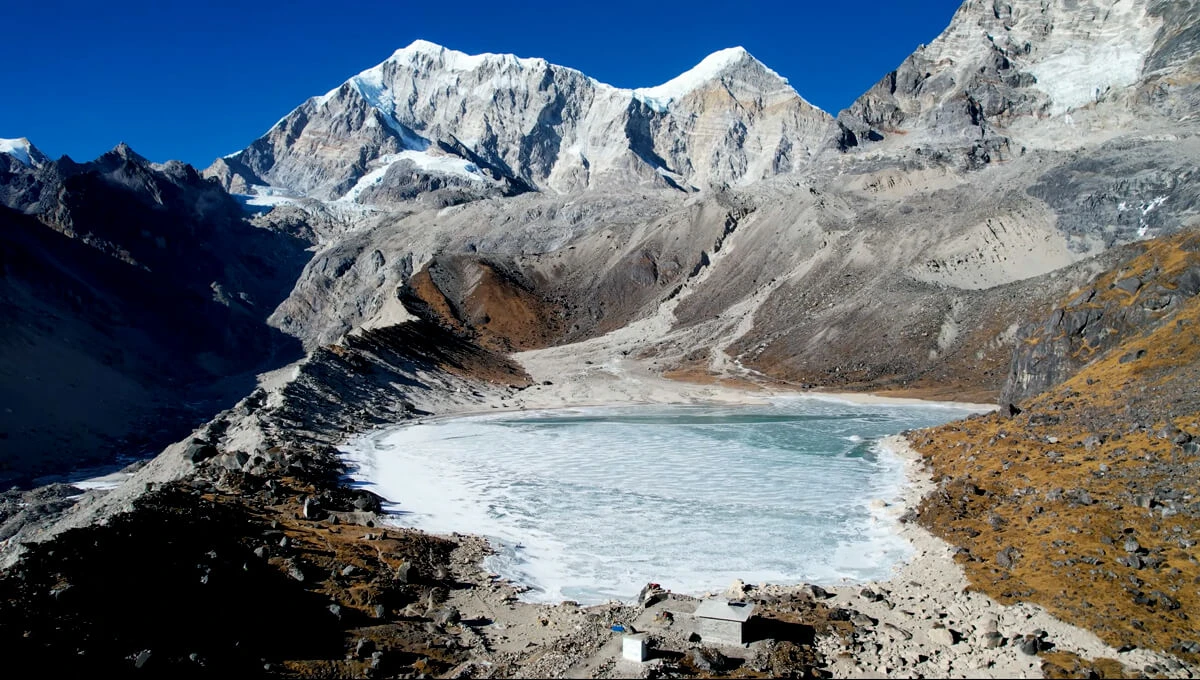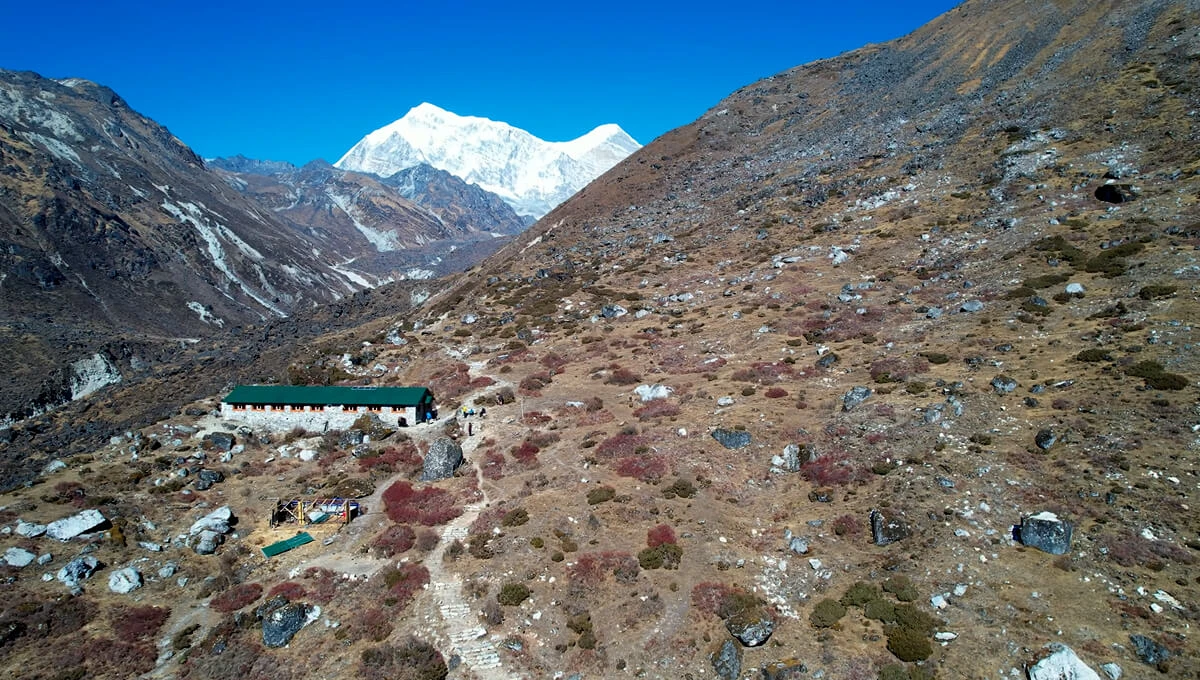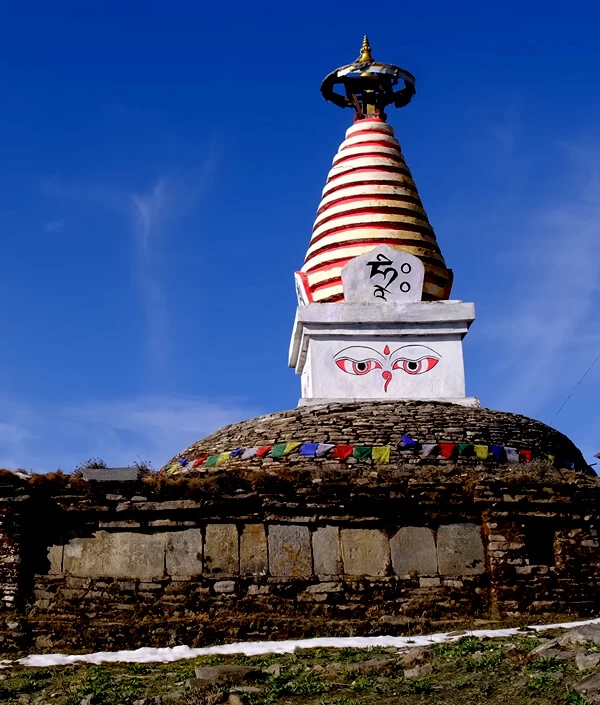Introduction to Pikey Peak and Dudh Kunda Lake Trek
The Pikey Peak and Dudh Kunda Lake Trek is one of the most beautiful and least crowded trekking adventures in the lower Everest region. Both of this trek combines routes that are popular for offering panoramic views of the Himalayas, authentic Sherpa culture, and amazing natural landscapes, making it ideal for trekkers wanting something unique and less commercialised.
The journey begins with the famous Pikey Peak Trek, known for offering breathtaking sunrise views of Mount Everest, Makalu, Kanchenjunga, and many other Himalayan peaks. The trails are gentle, well-marked, and full of blooming rhododendron forests, monasteries, and traditional villages, offering you an unforgettable cultural experience.
After enjoying the stunning Pikey Peak viewpoint, the trek continues towards the sacred Dudh Kunda Lake, one of the holy pilgrimage sites located at the foothills of Mount Numbur. The serene turquoise lake, surrounded by soaring mountains, makes this section of the trek even more spectacular.
This combined route is suitable for beginners and experienced trekkers, as it includes a moderate difficulty level and friendly trail conditions, one of the best alternatives to busier Everest treks, offering both adventure and tranquillity.
With its incredible scenery, cultural richness, and great value, the Pikey Peak and Dudh Kunda Lake Trek is becoming highly searched and popular trekking options in Nepal.
Important Highlights of Pikey Peak and Dudh Kunda Lake Trek
- Take a scenic drive from Kathmandu to Dhap, a great way to start your journey.
- Witness the stunning panoramic views of Mount Everest, Makalu, Kanchenjunga, Lhotse, and other surrounding peaks.
- Pass through dense rhododendron forests, pine woods, and alpine meadows.
- Encounter a variety of species of wildlife like musk deer, Himalayan birds, and mountain goats.
- Take a short flight from Phaplu to Kathmandu at the end of the trek, where you enjoy breathtaking aerial views of the Himalayas and hilly terrain.
- Enjoy quiet trails, peaceful scenery, and authentic experiences, perfect for adventure seekers and nature lovers.
- Experience Sherpa hospitality, lifestyle, and local cuisine items.
- Stay in a cosy community-based teahouse along the way.
How Difficult is the Pikey Peak and Dudh Kunda Lake Trek?
The Pikey Peak and Dudh Kunda Trek is considered moderate in difficulty, making it perfect for trekkers with basic fitness levels and some prior trekking experience. While the trek does not require technical climbing skills, it still takes you through high-altitude terrain, which can be challenging for those not used to such conditions.
Though the Pikey Peak and Dudh Kunda Lake Trek is not as high as other major Himalayan treks like Everest Base Camp, the altitude can still lead to risks related to altitude sickness if proper acclimatization is not followed. During the trek, make sure to adjust to the higher altitude so that in the coming days, you won’t have difficulty ascending. The trail offers a mix of challenges, like steep climbs through lush forests and rocky trails.
However, the route is well-maintained, so you can walk at an easy pace through Sherpa villages and beautiful rhododendron forests. The path is usually quieter, offering a peaceful, immersive experience in the Himalayas.
The trek’s overall difficulty will depend on your fitness level. Therefore, if you are new to trekking, it is a good idea to do some moderate hiking and cardio exercise a few weeks before the trip. The trek isn’t technically hard, but be ready for long days of walking, usually 5 to 7 hours each day, so it is important to have good stamina.
Why Choose the Pikey Peak and Dudh Kunda Lake Trek?
For trekkers looking to explore the Himalayas, the Pikey Peak and Dudh Kunda Lake Trek is the ideal choice for those seeking a peaceful adventure. Nestled in the Solukhumbu region, the trek passes through breathtaking mountain views, peaceful spiritual sites, and a chance to immerse oneself in authentic Sherpa culture. Below are some of the reasons why you need to choose the Pikey Peak and Dudh Kunda Lake Trek.
Stunning Himalayan Views
From the top of Pikey Peak, you can enjoy breathtaking panoramic views of the Himalayas, including Mount Everest, Makalu, Kanchenjunga, and Lhotse. It is also one of the best spots to catch the stunning sunrise over the Everest region, rewarding with a peaceful and awe-inspiring moment that makes the journey truly worth it.
Off-the-Beaten-Adventure
The Pikey Peak and Dudh Kunda Lake Trek offers an off-the-beaten-path adventure for trekkers looking for a great alternative to other renowned Himalayan treks like Everest and Annapurna Circuit. With fewer trekkers around, you can enjoy peaceful paths and get a closer experience with nature and the local culture around you. This off-the-beaten-path trek gives you a real taste of the Himalayas, with untouched nature, charming villages, and a calm atmosphere.
Sacred Dudh Kunda Lake
Situated at 4,561 meters, Dudh Kunda is a stunning glacial lake important for Hindu and Buddhist pilgrims. Snowy peaks surround the sacred lake, and it is believed that bathing in it purifies the soul and brings blessings. The lake’s calm beauty and spiritual feel make it a peaceful part of the trek.
Cultural Immersion
This trek gives you a great chance to experience real Sherpa culture as you walk through villages like Jinbesi, Phaplu, and Bhandara, where you get a taste of their food and meet friendly locals. Visiting the peaceful Thuptenchholing Monastery, a significant Buddhist spiritual centre, adds a cultural experience to your journey, rewarding you with insight into Tibetan Buddhist traditions and the spiritual life of the region.
Unique and unforgettable experience
The Pikey Peak and Dudh Kunda Lake Trek offers a rare combination of spirituality, nature, and adventure, making it a truly unique journey in Nepal. This trek takes you from the stunning mountain vistas and peaceful trails to the sacred Dudh Kunda Lake, a perfect combination of natural beauty and the region's rich cultural heritage.
Moderate Difficulty level
The Pikey Peak and Dudh Kunda Lake Trek is good for beginner trekkers looking for a rewarding Himalayan adventure without demanding challenges. The trail passes through some gradual ascents and high-altitude treks, without any technical climbing skills required. Without proper preparations, you can easily complete the journey.



